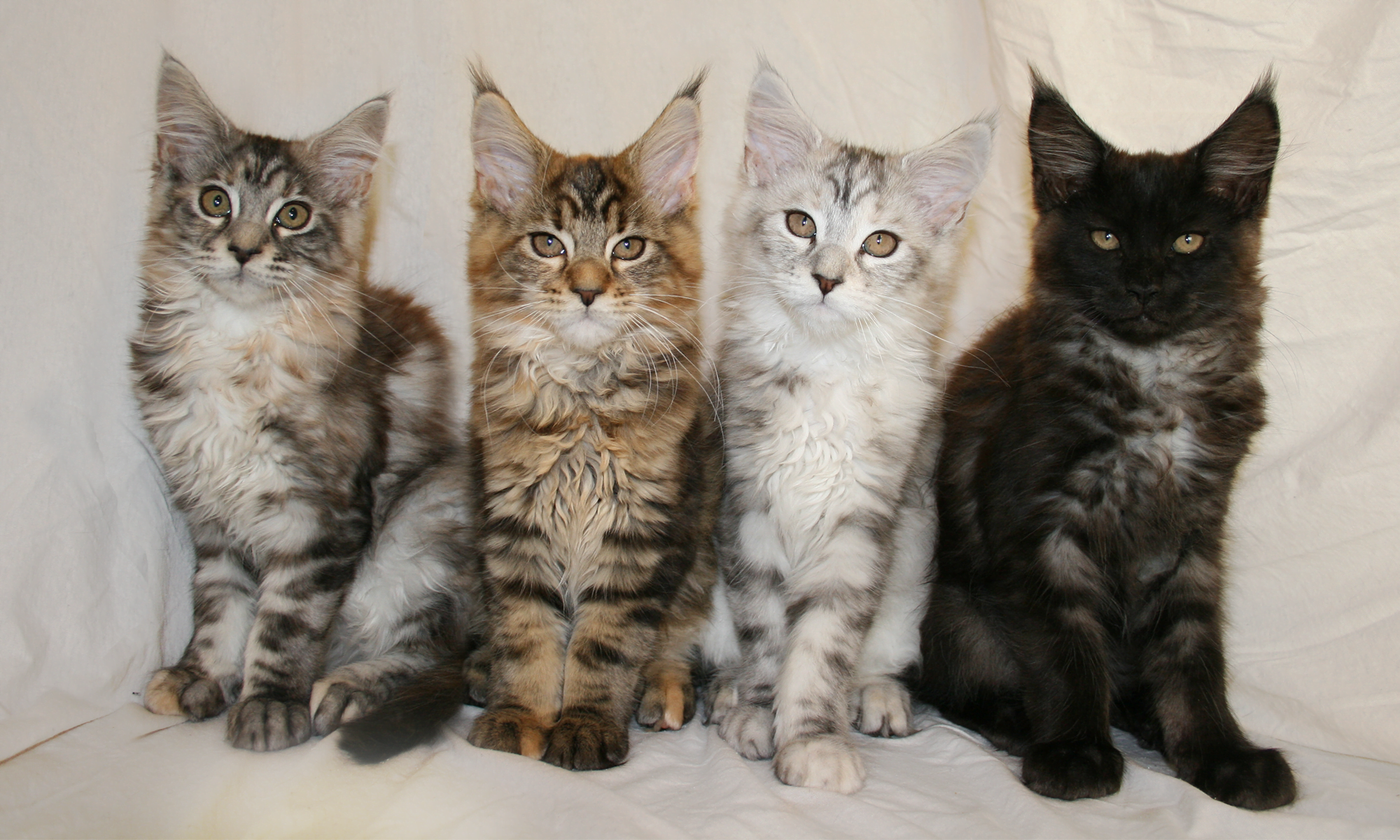When buying a Maine Coon kitten with a pedigree, it can be quite complicated. On our website, you can find information about the pedigree and the tests our female cats undergo. If you still have questions, please feel free to contact us.
What is a pedigree:
A pedigree is an official document that can only be issued by a recognized breed association. This document shows that a cat is of a specific breed. It lists the parents, grandparents, and great-grandparents. All pedigrees include either 4 or 5 generations of cat ancestors.
A pedigree kitten only receives a pedigree once it has been requested from the association that the breeder is a member of. We are members of the Dutch Longhair Cat Association. Each association has its own rules that breeders must follow before kittens can receive a pedigree. This includes restrictions on the number of litters a female cat can have, required tests for the cat, and the age at which breeding can begin with the mother cat. The breed association also checks if the colors of the kittens can come from both parents. This check is only possible when both parents have a pedigree. Both parents must have a pedigree; if one has a pedigree and the other does not, the kittens will not receive a pedigree.
Why a pedigree is important:
- Breed Purity: A pedigree confirms that a cat belongs to a specific breed. This is important for breeders and owners who want to maintain specific characteristics or traits of that breed.
- Health: Pedigree cats come from breeders who adhere to strict breeding rules, including testing for genetic conditions and avoiding inbreeding. This helps reduce genetic health problems within the breed.
- Identification: A pedigree provides an official record of a cat’s lineage, which is useful for identifying ancestors and can be valuable for genetic research or tracking a specific cat’s history.
- Breeding: For breeders, a pedigree is essential. It provides information about the cat’s genetic background, allowing informed breeding decisions to maintain or improve the breed’s quality.
- Shows and Competitions: At cat shows and competitions, a pedigree is often required for participation. It proves that the cat meets breed standards.
- Responsible Breeding: A pedigree places responsibility on breeders to adhere to breed association rules and standards, including the welfare of the animals.
Kittens Without a Pedigree:
There are various reasons why kittens may not have a pedigree. The most common reasons are that the parents do not have pedigrees, the kitten does not meet the breed standard, or it is a crossbreed. These situations often involve people who have a one-time litter and do not delve into the complexities of cat breeding or the associated risks. They may also skip necessary tests or engage in excessive inbreeding, which can lead to health issues for the kittens.
It can also occur that one of the parents has a pedigree, but the kittens do not. This can happen if, for example, the mother cat escapes during heat and mating occurs. In such cases, little to no information is available about the father.
Purebred but No Pedigree:
Additionally, you may come across advertisements for purebred kittens with both parents having pedigrees, but the breeder does not provide a pedigree for the kittens. In such cases, it’s important to know that applying for a pedigree can cost between 10 and 15 euros. This may be because, for instance, the mother cat was sold as a pet. When you buy a Maine Coon kitten, a distinction is made between a pet kitten and a breeding cat, which involves different tests and costs. You cannot request a pedigree for a pet cat. Each breeder has their own reasons for not selling certain kittens as breeding cats.
Another possible reason why a kitten does not have a pedigree is that the breeder does not want the litter to be registered. They may try to keep the litter as private as possible, for instance, by not disclosing the full pedigree names of both parents. Some breeders do this to avoid local authorities or breed associations knowing that they have more kittens than allowed. If a cattery has more than 20 kittens per year, it is considered a commercial operation, and they must have certain qualifications for handling dogs and cats. Another reason could be that a female cat has more litters per year than allowed, and if this becomes known, the cattery may be closed down. Breed associations also require reporting every litter.
Moreover, it’s possible that the kittens from the litter do not meet the standards set by the breed association. These associations have established these rules for specific reasons. It’s important to consider whether you want a kitten that doesn’t meet these standards. Reasons for not issuing a pedigree may include:
- The kittens are not fully vaccinated.
- The kittens are rehomed at too young an age.
- The mother cat has had 3 or more litters in 24 months.
- There is no valid stud cat declaration, which means uncertainty about the father’s identity.
